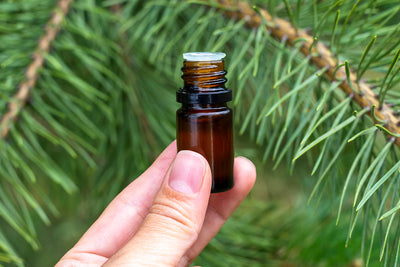Melatonin and Sleep: Unravelling the Secrets of the Sleep-Wake Cycle 😴
Sleep is a fundamental biological process that plays a crucial role in our overall health and well-being. While various factors influence the quality and duration of our sleep, one hormone that has garnered significant attention in recent years is melatonin. Melatonin is a naturally occurring hormone that regulates the sleep-wake cycle, and understanding its mechanisms can shed light on how we can optimize our sleep patterns. In this blog post, we delve into the fascinating world of melatonin and its relationship with sleep...
What is Melatonin? 🤔

Melatonin is a hormone produced by the pineal gland, a small pea-sized gland located deep within the brain. It is primarily responsible for regulating our circadian rhythm, often referred to as the "body clock." The circadian rhythm is a 24-hour cycle that regulates our sleep-wake patterns, body temperature, hormone production, and other physiological processes.
Melatonin Production and Release
The production and release of melatonin are intricately linked to environmental cues, most notably light and darkness. Melatonin synthesis begins when the sun sets and darkness falls. Specialized cells in the retina of our eyes sense the absence of light and send signals to the suprachiasmatic nucleus (SCN) in the brain, which acts as the body's master clock. The SCN then triggers the release of melatonin from the pineal gland, promoting sleep.
Melatonin and the Sleep-Wake Cycle 💤
Melatonin plays a crucial role in regulating the sleep-wake cycle. The hormone helps to synchronise our internal body clock with the natural light-dark cycle of the environment. Typically, melatonin levels begin to rise in the evening, reach their peak during the night, and decline in the early morning hours, signalling the body to wake up.
Melatonin helps us fall asleep faster and stay asleep longer. Melatonin levels rise in the evening as the sun sets and peak in the middle of the night, before gradually decreasing towards morning. This natural rise and fall of melatonin levels helps our body prepare for sleep and maintain a healthy sleep-wake cycle.
Melatonin can also improve the quality of our sleep. Studies have shown that melatonin supplements can help improve sleep in people with insomnia, particularly in those who have trouble falling asleep. Melatonin can also help regulate sleep in people who work night shifts or have jet lag, as it can help reset their circadian rhythm.
Using Melatonin to Improve Sleep 😴
There are certain dietary factors that can indirectly affect melatonin levels and support healthy sleep. These factors include:
1. Tryptophan-rich foods: Tryptophan is an amino acid that can help promote the production of serotonin, which is a precursor to melatonin. Foods rich in tryptophan include turkey, chicken, dairy products, nuts, seeds, and legumes.
2. Foods containing vitamin B6: Vitamin B6 is involved in the synthesis of both serotonin and melatonin. Good sources of vitamin B6 include fish, poultry, bananas, chickpeas, and fortified cereals.
3. Foods rich in antioxidants: Some research suggests that antioxidants may help protect and enhance melatonin production. Fruits and vegetables, especially those with vibrant colours like berries, cherries, and grapes, are good sources of antioxidants.
4. Avoidance of stimulants: Stimulants such as caffeine and alcohol can interfere with the production and release of melatonin. It's best to limit or avoid these substances, especially close to bedtime.
It's important to note that while diet can support healthy sleep patterns, melatonin supplements are often used to address specific sleep issues. If you're considering melatonin supplementation, it's best to consult with a healthcare professional to determine the appropriate dosage and timing for your specific needs.
Melatonin Supplements 💊
Melatonin supplements are a popular choice for people who struggle with sleep. These supplements are widely available over the counter and can be purchased in various forms, such as capsules, tablets, and gummies. It is important to note that melatonin supplements are not regulated by the FDA, and their safety and effectiveness can vary.
It is also important to use melatonin supplements responsibly. Experts recommend taking melatonin 30 minutes to an hour before bedtime, and starting with a low dose (0.3-1 mg) to assess its effects. Melatonin supplements should not be taken during the day or used to replace good sleep hygiene practices, such as maintaining a regular sleep schedule and avoiding bright light before bedtime.
Melatonin is a hormone that plays a critical role in regulating our sleep-wake cycle. It helps us fall asleep faster, stay asleep longer, and improves the quality of our sleep. Melatonin supplements can be a helpful tool for people who struggle with sleep, but it is important to use them responsibly and in conjunction with good sleep hygiene practices. If you are experiencing persistent sleep problems, it is important to talk to your healthcare provider to rule out any underlying medical conditions.




